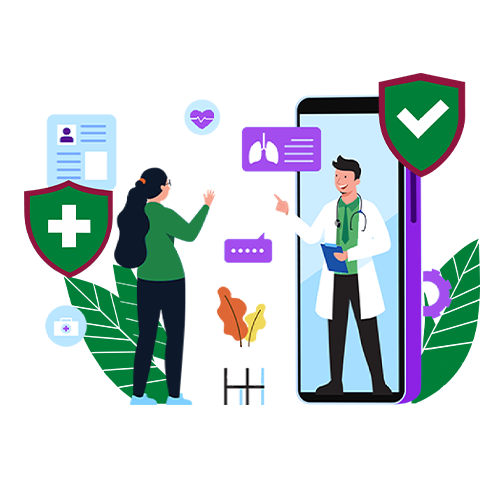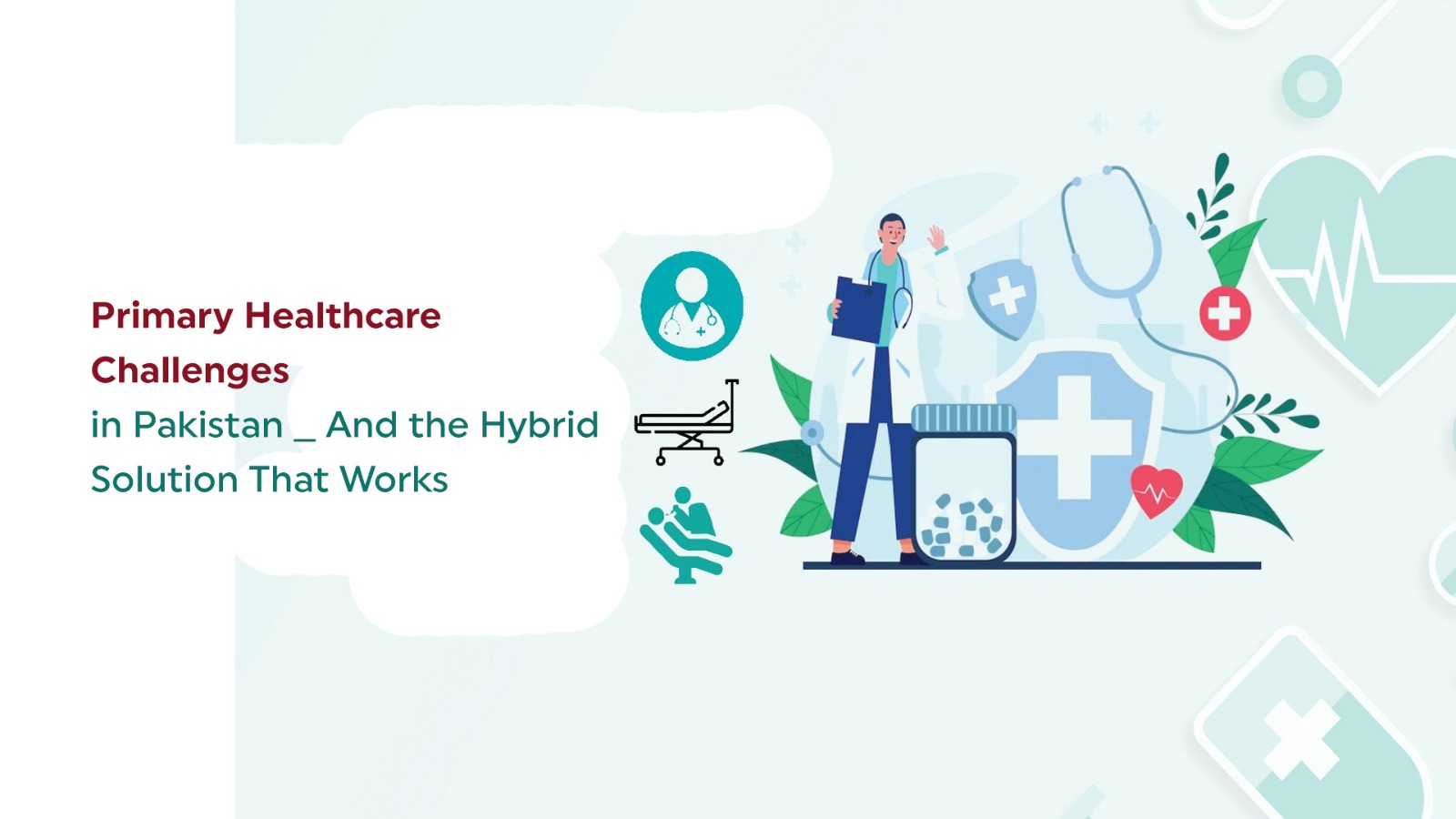While AI is transforming almost every field of life, a question might arise in everyone’s mind: “Is it changing mental healthcare, too? ” The answer is a big yes.
Quick Links
ToggleAI is transforming how we conceptualize, diagnose, and treat mental health conditions by integrating AI in mental health. The demand for mental health services is increasing day by day, and timely access to mental health services is becoming a challenge, particularly with the shortage of mental health professionals in certain locations. Here comes artificial intelligence, becoming the center of diagnosis and treatment in mental health.
Artificial Intelligence in Mental Health
Artificial intelligence is changing the way we access mental healthcare. The ever-growing AI tools make it easier for us to receive support, get treatment, and even communicate with humans.

1- The Emotional Support Chatbots
AI chatbots like Woebot and Wysa provide support and interaction with users while providing cognitive behavioral therapy techniques to ease their moods and help track them. There are other tools available like Replika to give you emotional support and act as a friend you can share everything with, even the silly thoughts that come to your mind, and it won’t judge you.
These AI chatbots are the perfect solution to get therapeutic and emotional support for people who are reluctant to share their issues with a human therapist, or socially isolate people.
2- AI-Based Mental Health Screening
Are you unsure of whether you are experiencing a mental health issue or not? AI tools can help you find out if you have any mental issues and if you need to see a doctor or not. These models can predict early signs of anxiety, stress, depression, and other mental health problems based on your speech patterns, text inputs, and facial expressions. Early diagnosis with the help of AI can help you treat your conditions before they worsen.
3- Personalized Mental Health Care Planning
AI tools can study patients’ health historical data their response to treatments in the past, and individual preferences, helping healthcare professionals develop the best treatment plans for each patient.
4- AI Predicting Mental Health Crisis
It may predict the probability of a mental health crisis based on the analysis of social media activity or patient health data and assist professionals in making early interventions.
5- Emotion Recognition
With AI technology using wearables or mobile apps, it becomes possible to detect emotional states by way of voice modulation or facial recognition. An individual can track his mood in the day.
6- AI Power to Monitor Patients Remotely
Their systems help mental health professionals manage their remote patient monitoring process by monitoring the behavior, mood swings, and activity levels of patients.
7- AI Power to Detect Neurological Disorders
AI systems study brain scans and notify mental health professionals if there is a tendency toward schizophrenia or bipolar disorder.
8- Drug Development for Mental Health
AI fast tracks drug discovery processes with enormous data processing related to the study of brain functions, thus leading to potential candidates that can counteract mental disorders.
Benefits & Drawbacks of AI in Mental Well-Being
Advantages Of AI in Mental Well-Being
- Accessibility: Mental health services can transcend time and space limitations, ensuring that demand is met despite the shortage of human therapists.
- Personalization: AI-based intelligence can further refine tailor-made therapeutic interventions, thus making mental health care more personalized and effective.
- Low Cost: AI therapy solutions are less expensive in comparison with traditional face-to-face therapy. It, therefore, reaches the downtrodden or those who cannot afford the expensive services.
- Scalability: AI can quickly allow thousands of mental health services that can reach millions, particularly the underserved.
Disadvantages of AI in Mental Well-Being
- Lack of Human Connection: AI can never replace the empathy or care that a human therapist offers for complex mental health conditions.
- Data Privacy Issues: AI systems collect sensitive mental health data, raising concerns about data security and privacy.
- Over-reliance: Over-reliance, whether on medicines or AI, is fatal. If people start depending on AI for all their issues, it can be dangerous as the AI system is incapable of handling severe mental health crises and emergencies.
AI in the Detection of Mental Illness
Artificial intelligence is increasingly being applied to the diagnosis of mental illness. AI models will analyze vast datasets about patients’ genetic input, environmental factors, and actual behavior to spot the earliest signs of mental illness. For example, algorithms processing speech patterns can now identify symptoms of depression, while machine learning tools aid in analyzing the behavior of people on social media to predict mood disorders such as bipolar disorder. AI can diagnose mental illness through the following:
- NLP for oral or written communications to detect signs of distress or mental illnesses.
- Machine learning to analyze patterns of behavior to find deviations indicating mental health conditions.
- Facial recognition identifies micro-expressions, which can be used to infer states or psychiatric conditions.
Emerging Brain Technology for Behavioral Health
New brain technology through AI has emerged that can make it possible to map brain activity, thus unlocking understanding of behavioral health.
So, this news brings about a new era in the understanding of mental disorders with these technologies, enabling professionals to tailor treatments working at a neural level.
AI Psychiatry & Behavioral Health
AI psychiatry expands the traditional psychiatric practice by introducing AI tools. The AI models have helped psychiatrists monitor patients and make treatment recommendations.
They can even predict patient reactions to certain medications. This is useful in behavioral health, such as tracking patients’ daily habits of emotional states, and it has been beneficial to both patients and professionals in managing diseases like depression anxiety disorders, or PTSD.
AI Revolutionizing Mental Healthcare in Pakistan
In Pakistan, AI-driven mental health solutions are rapidly gaining traction as they offer innovative approaches to addressing the country’s growing mental health crisis.
The integration of artificial intelligence in mental healthcare in Pakistan is revolutionizing how mental health conditions are diagnosed, treated, and managed. With the shortage of mental health professionals in Pakistan, AI tools such as AI-based mental health screening and emotional support chatbots are bridging the gap by providing accessible and cost-effective support.
Moreover, AI Technology in Pakistan is improving early diagnosis, personalized treatment plans, and remote patient monitoring, making mental health services more efficient and scalable across the country. As AI continues to evolve in Pakistan, it is expected to play a critical role in transforming the mental healthcare landscape, offering hope to millions of individuals seeking timely and affordable mental health support.
The Future of AI & Mental Health
As AI continues to advance, so will its role in the mental health care space: advancements in machine learning, natural language processing, and brain imaging technologies will only continue to proliferate its ability to assist in early diagnosis, personalized treatment, and even preventive care. Of course, there will be particular challenges with ethics and privacy in this new “landscape,” but there is an exciting opportunity now emerging to transform the face of mental health care.
It will make therapy more accessible, personalized, and effective in the broadest sense with the integration of AI in mental health care; however, to avoid an imbalance in favor of AI tools against human expertise in ensuring holistic healing, care must be taken.
Frequently Asked Questions (FAQ’s)
AI chatbots, like Woebot and Wysa, offer interactive therapeutic support by providing Cognitive Behavioral Therapy (CBT) techniques. They help users manage mental health conditions such as anxiety, depression, and stress by offering emotional support and tracking progress over time.
AI chatbots are valuable tools for early-stage support and managing mild mental health issues. However, they cannot replace human therapists, especially for complex cases. AI chatbots should be a supplementary resource, while professional care is needed for more severe conditions.
AI chatbots assist in delivering real-time support, helping users engage in self-help therapies like CBT. They can also provide continuous check-ins, track mood changes, and offer coping strategies, making mental health support more accessible and efficient.
AI chatbots leverage Natural Language Processing (NLP) and machine learning algorithms to analyze speech patterns, text inputs, and even facial expressions. These tools help detect signs of mental health issues like stress, anxiety, and depression by recognizing specific behavioral cues.
AI chatbots offer numerous benefits, including:
Accessibility: Available 24/7, providing immediate support.
Affordability: AI chatbots offer a low-cost alternative to traditional therapy.
Scalability: AI can provide mental health support to a larger population, especially in underserved areas.
Personalization: AI chatbots tailor support based on individual needs, making treatment more effective.
AI chatbots are poised to play a significant role in the future of mental healthcare by improving accessibility, affordability, and scalability. While they cannot replace human interaction, they will serve as crucial tools for early diagnosis, ongoing support, and personalized care.
SUMMARY
AI is transforming mental healthcare by enhancing diagnosis, treatment, and emotional support. Google’s AI chatbot, along with similar technologies, is playing a significant role in mental health screening, crisis prediction, and therapy assistance.
Key AI Innovations in Mental Healthcare
- Emotional Support Chatbots – AI chatbots like Woebot and Wysa offer cognitive behavioral therapy techniques to help users manage their mental well-being.
- AI-Based Mental Health Screening – AI detects early signs of anxiety, stress, and depression by analyzing speech patterns, text inputs, and facial expressions.
- Personalized Treatment Plans – AI detects mental health care by studying patient history and responses to previous treatments.
- Emotion Recognition and Remote Monitoring – AI-powered tools track emotional states and monitor patient behavior for better health management.
- AI in Psychiatry and Drug Development – AI assists psychiatrists in treatment recommendations and accelerates the development of health medications.
Benefits of AI in Mental Healthcare
- Accessibility: AI chatbots and tools provide 24/7 mental health support, especially in areas with a shortage of professionals.
- Affordability: AI-driven therapy solutions are more cost-effective than traditional mental health services.
- Scalability: AI-powered mental health solutions can reach millions of people worldwide, addressing the growing demand for mental health support.
Challenges and Ethical Considerations
- Lack of Human Connection: AI lacks the empathy and nuanced understanding that human therapists provide.
- Data Privacy Concerns: AI systems collect sensitive mental health data, raising security and privacy issues.
- Over-Reliance on AI: While AI enhances mental health services, it should complement rather than replace professional human intervention.
The Future of AI in Mental Healthcare
Advancements in machine learning, natural language processing, and brain imaging will continue to improve AI’s role in mental healthcare. While AI offers promising solutions, maintaining a balanced approach that integrates both AI-driven assistance and human expertise is essential for holistic mental health treatment.














